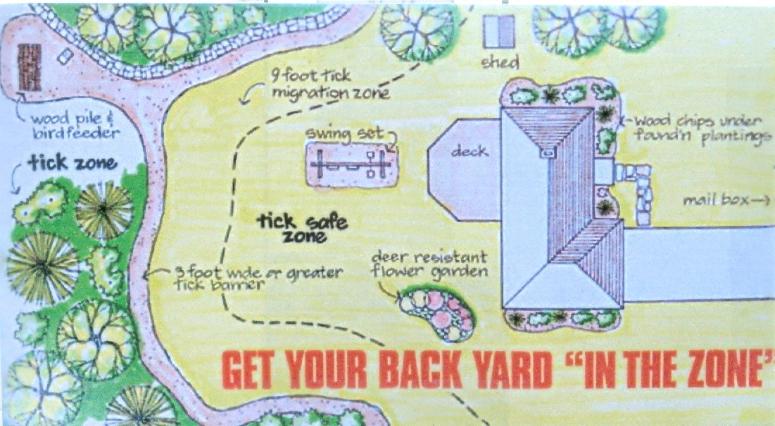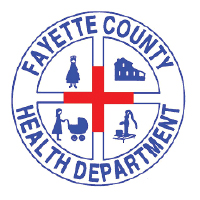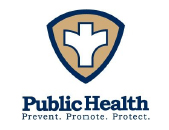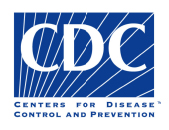Recycling
Tanning
The Division of Environmental Health conducts inspections of each tanning facility in Fayette County to ensure their operations are complaint with the Illinois Tanning Facilities Code and the Tanning Facility Permit Act.
Non-Community Water
A Non-Community Water System is a public water system which is not a community water system, and has at least 15 service connections used by non-residents or regularly serves 25 or more non-resident individuals daily for at least 60 days per year.
The Division of Environmental Health routinely monitors non-community water systems to ensure compliance with Illinois EPA Drinking Water Standards for coliform. To learn more about the Non-Community Drinking Water Program, visit Non-Community Public Water Supply Program Handbook.
Ticks
Ticks are parasites which feed on the blood of mammals, birds, and occasionally reptiles and amphibians. Ticks can be found on most wooded or forested areas throughout the world. They are especially common in areas where there are deer trails or horse paths. Often they are found in tall grass where they will wait to attach to a passing host. They will generally drop off the animal when full, but this may take several days. In some cases, ticks will live for some time on the blood of an animal. Ticks have a harpoon-like structure in their mouth area, known as a hypostome, that allows them to anchor themselves firmly in place while feeding. The hypostome has a series of barbs angled back, which is why they are so difficult to remove once they have penetrated a host.
Ticks are an important vector for diseases. Some of the more common diseases that can be contracted from a tick bite include: Echrichiosis, Lyme Disease, Rocky Mountain Spotted Fever, and Tularemia.
There are steps you can take to reduce your exposure to ticks. If you go into a wooded area, it is best to wear protective clothing and apply insect repellent containing 10-30% DEET primarily to your clothes. Apply sparingly to bare skin areas. Frequently check yourself for ticks. Most ticks seldom attach quickly and rarely transmit disease until they have been attached four or more hours. Also, if your pets spend time outdoors, be sure to check them for ticks.
Analyzing your property can also be effective tick protection. The object of the analysis is to make areas of your property less hospitable to deer, mice, and ticks. It is not necessary that all areas of your property be made tick safe, just the areas your family uses for activities.

Notice how the back yard above is divided into a "tick safe zone" and a "tick zone". The tick safe zone is for active recreation, flower gardening, the mailbox, driveway, and a shed. Most of it will be in the sun and have lawn as ground cover.
Rabies
Rabies is a deadly disease caused by a virus that attacks the central nervous system. The virus is present primarily in the saliva, brain tissue and spinal fluid of a rabid animal. Rabies can be transmitted to all mammals and is fatal if not treated immediately. To learn more about rabies check the Illinois Department of Public Health Rabies Web Page.
Animals suspected of having rabies should be tested. The head of the animal must be complete and intact. The Fayette County Division of Environmental Health can collect and deliver suspected animals for testing.
Bed Bugs
Animal Control
The Fayette County Division of Environmental Health does not offer any services for the control of wild or domestic animals.
Wild animal concerns should be directed to the Illinois Department of Natural Resources. Also, the University of Illinois has useful tips for Living With Wildlife.
Domesticated animal concerns should be directed to the Fayette County Animal Control. They can be reached at 618.283.1791.
If you have concerns regarding inhumane treatment of animals, improper disposal of dead animals or animals running at large visit the Illinois Department of Agriculture Bureau of Animal Welfare or contact their office at 217.782.6657.
Mold
Concern about indoor exposure to mold has been increasing as more people become aware that exposure to mold can cause a variety of health effects and symptoms, including allergic reactions. The Fayette County Division of Environmental Health does not offer testing or inspections for mold. We do offer educational materials about mold and mold remediation. The following are common questions and answers about mold and mold remediation.
Does the IDPH test for mold?
No. Even if testing is done, no standards exist to determine acceptable amounts of mold. Testing cannot determine whether adverse health effects will occur.
Who can test for mold?
Usually an industrial hygienist. Look for individuals or companies under "Environmental Services" in the Yellow Pages. Also, the American Industrial Hygiene Association provides a list of members at www.aiha.org. Generally, IDPH does not recommend mold testing.
Should I have my home or business tested for mold?
We do not recommend it. If mold is visible there is source of moisture that needs to be eliminated, and the mold needs to be removed and the area cleaned.
What are the health effects of mold exposure?
Molds produce allergens, irritants, and sometimes toxins. A person's reaction to mold depends on the level of exposure, their age, and the person’s sensitivities to mold. It is different for each individual.
Symptoms can include - allergic reactions - runny nose, sneezing, nasal congestion, watery eyes, skin rash.
Infectious diseases from mold can occur in people with weakened immune systems. These are opportunistic infections that usually do not affect healthy people.
How can I clean areas of mold in my home or business?
- Eliminate sources of moisture. Mold will return if a moisture problem is not remedied.
- All areas should be throughly cleaned will a soap or detergent solution. Any porous areas such as carpet or drywall that cannot be throughly cleaned should be discarded. Disinfect the area after it is completely cleaned.
- Avoid sanding areas with mold when possible to reduce dust and debris.
- Debris should be bagged and sealed before removing from the work area. This helps prevent mold from spreading to the rest of the house.
- Provide continuous ventilation, especially when cleaning agents or disinfectants are used.
- Wear rubber gloves and protective clothing that can be easily cleaned or discarded. In addition, wear a N95 or HEPA filter mask
- Are there professionals that perform mold cleanup?
- Yellow Pages - "Fire and Water Damage Restoration."
- Internet - Institute of Inspection Cleaning and Restoration Certification or Restoration Industry Association
Does IDPH license individuals to perform mold testing or cleanup?
No. Nor does any other state of federal agency. IDPH cannot recommend the services of any contractor.
Does Illinois have laws that pertain to mold?
The only law passed so far is the establishment of a Mold Task Force to address issue of mold in indoor environments.
I have mold in my apartment and my landlord will not address the situation. Can IDPH help?
No. IDPH cannot enforce codes that define and protect indoor air quality. Persons in incorporated areas should contact their city government, while persons in unincorporated areas should contact their county government.
Where can I find more information about indoor mold and health?
Please refer to our fact sheets that relate to mold:





